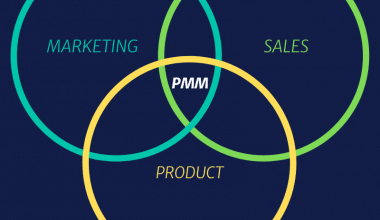Project management is critical to the success of any business; it is at the heart of nearly all daily operations. A project manager is in charge of organizing skilled workers into teams, developing and implementing team plans, and facilitating the execution of all projects. All of this is done to help the company reach its objectives. Specific duties and roles for each project manager are heavily influenced by the company for which the manager works and the industry in which the company operates. A project manager’s career in management often begins at a consulting firm. In this article, we will discuss which qualifications are required to become a project manager without prior experience. What education requirements and qualifications are required to prepare a construction project manager resume and discuss its salary range?
Project Manager Qualifications and Responsibilities
An essential quality for any project manager is organization. When a company assigns a project manager to a project, multiple factors and elements must come together seamlessly in order for the project manager to execute the project and achieve the company’s desired result.
In some cases, multiple departments within a company must collaborate to complete a project. Under these conditions, the project manager must direct and oversee each department’s plans, ensure that all departments are operating efficiently and effectively, and combine all aspects to complete a project on time and within budget. Every project manager’s major tasks are to keep within the company’s budget and meet the deadline.
Project Manager Qualifications and Requirements
Earning an undergraduate degree in management is usually the best place to start if you want to work as a project manager. This degree gives you a solid grounding in important areas like general management and human resources skills. The courses required for this degree also improve communication and interaction skills. Both are necessary for success as a project manager.
Some of the requirements for this role will be based on the company and the industry in which it operates. There are some organizations that will only consider candidates with a master’s degree in project management.
Construction Project Manager Qualifications
Qualifications for a project manager are also an important part of the construction industry and the construction process of any project. Project managers are in charge of overseeing the construction process. They are accountable for the entire project’s outcome and take part in every step of the process.
The project manager supervises the entire construction project and ensures that all personnel involved in the project are performing their jobs professionally, following industry standards, and following the safety procedures for carrying out their respective jobs safely.
Managers communicate with a wide range of experts, from lower-level workers to higher-level architects, planners, designers, and engineers. This section highlights some essential project manager qualifications in the construction industry.
Project Management Professional (PMP):
The PMP certification is the most widely recognized industry credential for project managers, and it is known and sought after by employers all over the world. If you want to study project management in depth and boost your compensation, consider getting your PMP certification. Eligibility depends on academic credentials, but candidates should have substantial project management experience and a secondary or university degree.
RIBA Certificate in Construction Project Management:
The RIBA certificate is a hands-on modular course for experienced project managers wishing to increase their competence and professional techniques. The certificate also emphasizes the importance of communication culture in the modern construction industry. Course components are taught both in-person and online.
Program Management Professional (PgMP):
PgMP certification is intended to demonstrate a candidate’s ability to manage multiple, related projects at the same time and use their skills to achieve strategic goals. The credential assists experienced project managers in advancing to senior positions and broadening their skill sets. Candidates with secondary education and extensive practical experience in project management may apply. Eligibility varies depending on academic experience.
Project Manager Qualifications Resume
To achieve success, project managers rely on a combination of soft and hard skills. When applying for construction project manager positions, it is critical to include these skills and qualifications on your resume to demonstrate to employers how you are a good fit for the job. You can also take several steps to ensure that your skills are highlighted in a way that distinguishes you from other candidates.
This section will teach you why it is important to include your construction project management skills and qualifications on your resume, how to list these skills on your resume, and some of the most effective project management skills to highlight on your resume.
Why is it Important to Include Project Manager Skills and Qualifications in your Resume?
To succeed in a fast-paced work environment, you must be able to prioritize and delegate tasks, lead a team, and apply both soft and hard skills as a project manager. By putting these skills on your resume, you can show employers that you know a lot about your field and what you can bring to the job. It’s also a good idea to show how you use your skills to get results and reach your goals.
How to Include Project Manager Qualifications and Skills on Your Resume
You can use the steps below to help you write your resume to include your project manager skills.
#1. Select an appropriate template to use.
First, select a resume template that will best highlight your project manager’s skills and qualifications. You could, for example, use a template designed specifically for project management. Whatever template you choose, make sure it includes sections for your professional summary, work and educational background, and skills.
#2. Highlight your skills with quantifiable examples, in your summary.
After selecting your preferred template, you can immediately highlight your skills in your resume summary. You might demonstrate your skills and experience by outlining how you used project management software to monitor and enhance your deliverables. Employers will notice your resume if you leverage your expertise to prove you’re qualified for the position.
#3. Give examples of your skills when listing your experience.
When it comes to the experience section of your resume, make sure to include examples of how you excelled in each previous role. Using your skills to help employers achieve a goal or exceed their expectations is more effective than simply listing your job duties.
#4. Include work samples or a project portfolio to demonstrate your abilities.
You can also demonstrate your skills and expertise by including links to your online portfolio and work samples if you have them. Make certain that your URLs have professional domain names and reflect the information in your resume.
What are the Best Project Manager Qualifications and Skills to Include in your Resume?
Several types of soft and hard skills may be required to take on the role of project manager, and the following skills should be developed and highlighted on your resume:
- Interpersonal and communication skills
- Capabilities in leadership and teamwork
- Problem-solving and analytical abilities
- Organizational and time management abilities
- Knowledge of risk and cost management
- Performance evaluation
- Technical abilities
Project Manager Education Requirements
Universities provide project manager education at a variety of levels, from undergraduate certificates to graduate degrees. A degree in project management is not, however, required for the position. While education requirements for a project manager vary by employer, it is entirely possible to manage projects with only a high school diploma or equivalent and no postsecondary education.
What Degree Education Requirements Do You Need to Be a Project Manager?
A bachelor’s degree is required in most corporations for a project manager position, though candidates with expertise in a specific area or long-term experience may be able to get by without one. Contrary to popular belief, a bachelor’s degree in project management is not required; degrees in other fields, such as architecture, construction management, or engineering, may be more useful in certain situations, such as for a construction project manager. Knowledge and experience relevant to the project’s goal are frequently just as important as general project management experience. If you are looking for a project management education program, you should consider:
- Undergraduate project management certificate
- Project management professional certificate
- Bachelor’s degree in project management
Those with bachelor’s degrees in other fields who want to become full-time project managers should consider getting a master’s degree in project management.
What Can I Do With a Project Management Degree?
Project managers can find work in almost any field because the term “project” is so broad. Project managers are frequently seen in the construction and information technology industries, as well as in general business areas such as marketing. However, project managers can use their skills to help non-profits manage fundraising campaigns or new initiatives, as well as governments, manage infrastructure upgrades or large projects for agencies. A project manager’s skills can be used by an organization as long as it embarks on projects with a specific end goal in mind.
How to Become a Project Manager Without Experience
While many companies prefer project managers to have a bachelor’s degree, this is not always the case. Smaller businesses may not have strict education requirements, preferring to hire from within, with no project management degree required. Project management can also occur at a less formal level, where a boss simply assigns an employee to complete a task with the assistance of a small team due to their seniority or familiarity with the project’s focus.
As long as this experience is documented, it can be used as evidence when applying for project manager jobs or certification. It may also be possible to advance from related positions, such as project coordinator while remaining in the project management field.
Project Manager Qualification Certification
The Project Management Institute (PMI) is a professional organization that provides project management certification through the Project Management Professional credential (PMP). Certification is entirely optional, but it can serve as proof of experience and commitment to the profession. Certified project managers may find themselves in higher demand and thus earn higher salaries. To be certified, one must either:
- You must have a four-year degree in any field, 4,500 hours of project management experience, and 35 hours of project management training.
- Have a high school diploma (or equivalent) or an associate’s degree in any field, have completed 7,500 hours of project management, and have attended 35 hours of the project management school.
Credit for the 35 hours of education can be earned through PMI-approved programs ranging from a certificate to a master’s degree. After meeting these project manager education qualifications, applicants must pay a fee and pass a 200-question exam. To keep their certification, a PMP must complete 60 professional development units of continuing education every three years.
Project Manager Salary
The salary of a project manager varies depending on their work country and previous experience. The average project manager salary in the United States is $75,474, according to Glassdoor, with additional cash compensation ranging from $1,541 to $19,755. As a result, the annual salary of a project manager can range between $51,000 and $111,000.
This project manager leads salary can be lower or higher depending on your skills, experience, and knowledge. Project management careers are still in high demand, and annual wages for all project manager levels are expected to rise over the next ten years.
How can I become a project manager?
Develop your skills and experience, obtain a certification, or work your way up on a team to become a project manager.
Do you need a degree to become a project manager?
Being a project manager entails more than just academic qualifications. While there are numerous certifications available, having a degree is not required. There are numerous other steps you can take to become a project manager.
Can anyone become a project manager?
Yes, the answer is yes. You may not have all of the skills right now, but anyone can learn to be an excellent project manager with dedication, perseverance, and passion. We’ll answer some of your questions based on our experience, whether you’re a recent graduate or in the early stages of your career.
Can I be a project manager with no experience?
Although many project manager positions require experience, it is possible to get a job in project management without experience, especially if you can demonstrate your commitment to the industry and that you have the necessary skills.
What do project managers study?
Enroll in a business or related bachelor’s degree program. A bachelor’s degree or higher is required for most project management positions. You can begin your project management career with a degree in business management, but some universities also offer project management specialized programs.
Is it hard to become a project manager?
Project management is one of the most difficult careers because no two days are alike, and you will need all of your project management skills to solve every problem. You’ll also be the first person your team turns to when a problem arises. They may expect you to have the answers to any questions they may have.
Conclusion
Project managers supervise groups of skilled workers and teams to ensure project completion. The roles and responsibilities of project managers differ depending on the company and industry. A project management career can be lucrative, and a successful project manager may eventually advance to a senior management position.
You have just learned the qualifications and everything you need to know to become a successful construction project manager. Don’t hesitate to get things rolling.
Project Manager Qualifications FAQs
Is project manager a stressful job?
Project management, unsurprisingly, can be extremely stressful. We are accountable for delivering on time, within budget, and within scope, but we frequently face limited or inadequate resources, unrealistic client expectations, and a to-do list that could easily reach the moon and back.
Why do project managers quit?
People leave project management for the following reasons, in my experience: the work is too stressful, with no work/life balance (we now call this work/life integration). The team, senior management, or executive level is disorganized and has poor communication skills, making it difficult to get anything done.
Do project managers work from home?
Project management jobs are frequently performed remotely because tools and programs make it simple to collaborate and track deadlines.
- COMBINATION RESUME: Templates and Examples 2022 (Updated)
- MARKETING MANAGER: Job Description, Salaries & Guide
- Project Planning: A Guide To Project Planning Techniques
- PRODUCT MANAGER VS PROJECT MANAGER: Job Description Differences
- HOW TO GET INTO PROJECT MANAGEMENT: Definition, Guide and Requirment






